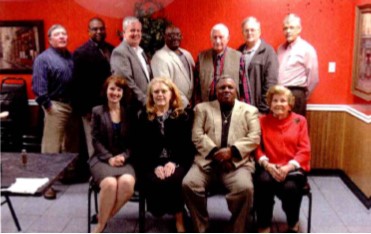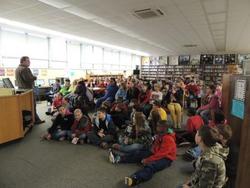Neshoba County Soil & Water Conservation District Leadership

| COMMISSIONERS | DEPUTY COMMISSIONERS |
|---|---|
| (1) Nelson White | (1) Glenda Winstead |
| (2) Lynn Copeland (Treasurer) | (2) Steve Cumberland |
| (3) Ross Williamson (Vice-Chairman) | (3) Mary Lundy Meruvia |
| (4) Carl Mason (Chairman) | (4) Charlie Wilson |
| (5) Jerry Smith | (5) Deric Horne |
District Administrator - Erica Fortenberry
Erica Fortenberry, District Administrator
511 East Lawn Drive
Philadelphia, MS 39350
Phone 601-656-8783, Extension # 3
E-Mail: erica.fortenberry@ms.nacdnet.net
The latest edition of Neshoba County Conservation News can be found here.
Please visit our facebook page:
What is a Soil and water Conservation District? During the 1930's, as Americans were recovering from the Great Depression, along came an unparalleled ecological disaster of national consequence. Americans looked out their windows to a black fog of dust, slowly moving across the entire United States. Following one of the most severe droughts in history across the Great Plains, the region's soil began to erode and blow away creating great clouds of dust, some of which began to settle in Washington, and came to the attention of President Franklin Dl Roosevelt.
Through a Presidential mandate, Congress subsequently passed legislation declaring soil and water conservation a national policy and priority. Congress realized, since about 75% of the land in the continental United States was privately owned, that the only guarantee for the success of a conservation program was to garner voluntary support from the landowners.
In 1937, President Roosevelt wrote the governors of all states recommending legislation that would allow local landowners to form soil conservation districts.
The Mississippi Legislature, in 1938, officially recognized that our soil resources were deteriorating at an enormous rate and that this was being caused by misuse or improper use of the land and the lack of applied conservation treatment or measures. It further recognized that if this were allowed to continue, the results would be disaster.
In its effort to solve the program, which was primarily soil erosion, the Mississippi legislature enacted the Soil Conservation Law (currently the Soil and Water Conservation Law), in which the State Soil Conservation Committee (currently the Mississippi Soil and Water Conservation Commission) was created. Provisions were made so that each county could organize a soil and water conservation district.
A Soil & Water Conservation District's governing board is comprised of voluntary citizens who come together and represent land owners and users in their district and ensure a local voice in conservation.
MACD Vision Statement
 Today, there is a Soil & Water Conservation District in every county in Mississippi. Among other things, these Districts' ongoing and future efforts are to: Implement farm conservation practices to keep soil in the fields and out of waterways, conserve and restore wetlands and wildlife habitat. Reach out to communities and schools to teach the value of natural resources and encourage conservation in generations to come.
Today, there is a Soil & Water Conservation District in every county in Mississippi. Among other things, these Districts' ongoing and future efforts are to: Implement farm conservation practices to keep soil in the fields and out of waterways, conserve and restore wetlands and wildlife habitat. Reach out to communities and schools to teach the value of natural resources and encourage conservation in generations to come.
The Neshoba County Soil and Water Conservation District celebrated the beginning of the spring growing season with three local schools’ fourth and fifth grade students on March 18th and 27th. Jeff Wilson, with the Mississippi Soil and Water Conservation Commission Office in Jackson, spoke with over 190 students from Philadelphia Elementary and Union Elementary about container gardens and the importance of growing your own food.  Neshoba Central Elementary was not able to have the speaker come in this year, but they do plan on participating with the program. Each container garden holds 3 to 4 containers so that each science class will have a container. There will be a competition between the classes on which has the best plants. They will be planting seeds donated by Southern Exposure Seed Exchange, and will be experimenting with and without different fertilizer types. The gardens were built by the Neshoba County Future Farmers of America with modifications made by the Natural Resource Conservation Service to allow the recycling of water. The Neshoba County SWCD would like to thank MACD, MSWCC, FFA and NRCS. We would also like to thank Philadelphia Elementary, Neshoba Central Elementary, and Union Elementary for their participation in this program.
Neshoba Central Elementary was not able to have the speaker come in this year, but they do plan on participating with the program. Each container garden holds 3 to 4 containers so that each science class will have a container. There will be a competition between the classes on which has the best plants. They will be planting seeds donated by Southern Exposure Seed Exchange, and will be experimenting with and without different fertilizer types. The gardens were built by the Neshoba County Future Farmers of America with modifications made by the Natural Resource Conservation Service to allow the recycling of water. The Neshoba County SWCD would like to thank MACD, MSWCC, FFA and NRCS. We would also like to thank Philadelphia Elementary, Neshoba Central Elementary, and Union Elementary for their participation in this program.

